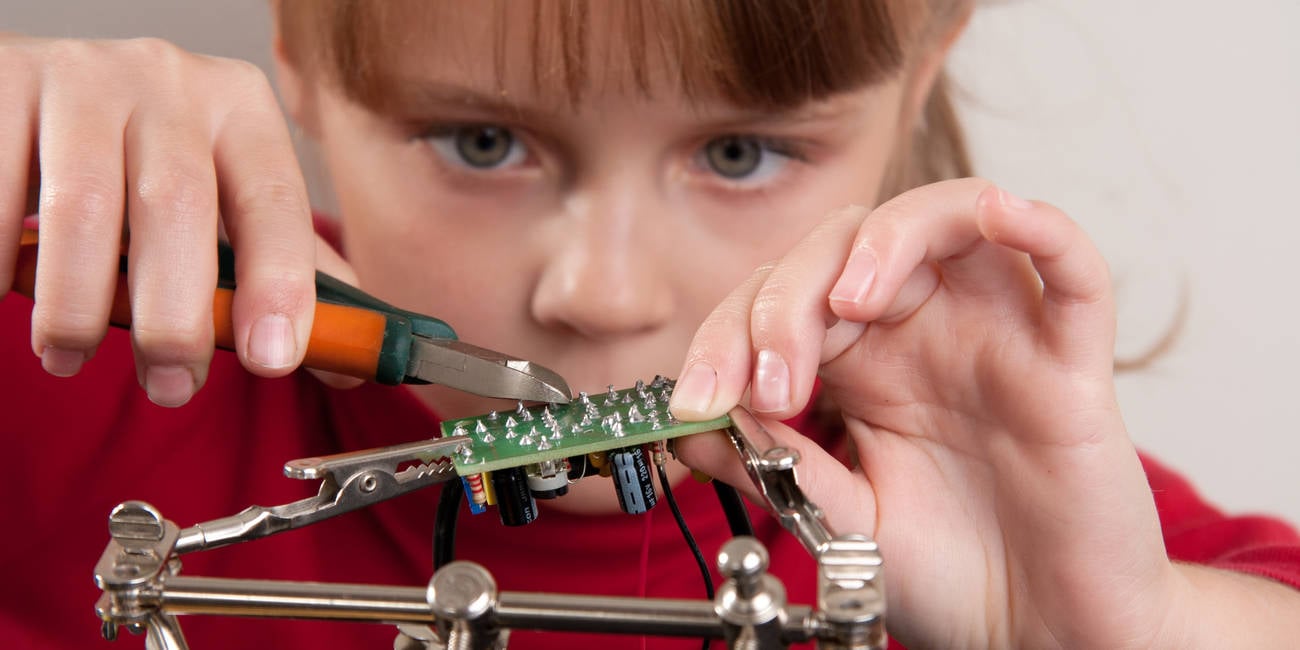Biden Wants Chipmakers To Provide Childcare If They Want Billions In Free Money

There are more than a few strings attached to the $52 billion in funding set aside by the CHIPS and Science Act for domestic chipmaking projects, and this week the Biden administration added another: affordable childcare.
New rules, slated for release by the US Commerce Department this week, will require chipmakers hoping to avail themselves of the billions in subsidies made available by the law to provide low-cost childcare for the men and women building and operating the facilities, the New York Times reported Monday.
However, businesses won’t necessarily have to pay for all of it. In addition to the infrastructure and materials necessary to build new fabs, companies reportedly will be able to use a portion of the CHIPS funds on childcare for their workers.
Fund applicants can integrate child-care facilities into their foundry designs, pay local providers to expand availability of services, or offer workers a stipend to pay for the costs of raising children. And it's worth noting that there’s no requirement for free childcare, just that it has to be affordable.
However, it’s not exactly clear what “affordable” means in this context. The US Department of Health and Human Services says [PDF] childcare must be less than 7 percent of household income to be considered affordable.
But depending on where you live, the actual cost is usually much higher than that. A 2018 study found that the average annual cost of full-time childcare ranged from $5,700 to $19,269 a year, depending on the city and state. And things certainly haven’t gotten cheaper in the post-COVID era.
- Sure looks like Beijing stole blueprints from chip fab world's ASML
- Unless things change, first zettaflop systems will need nuclear power, AMD's Su says
- Intel slashes shareholder dividend by two-thirds as cash crunch bites
- Intel coughs up for something other than stock buybacks: Avoiding wafer spoilage
In Ohio, where Intel has broken ground on a $20 billion fab project that will employ about 3,000 workers when complete, childcare ranges between $7,895 and $9,697, according to the Economic Policy Institute think tank. By its estimate that’s about 16.9 percent of a median family’s income in the state.
However, for an Intel employee making claimed average salary of $135,000 a year, that would mean childcare in the state is already “affordable” under the Department of Health’s definition and improving access would be the primary requirement under the rules. As many parents know well, even if childcare costs are manageable, that doesn’t mean they’re readily available.
The new rules come as the US Commerce Department prepares to start accepting early applications for CHIPS funding. As we detailed when the bill was first approved, the funding takes the form of roughly $39 billion in subsidies, $11 billion for research and development, and an additional $24 billion in tax breaks, to the tune of 25 percent.
However, the bill isn’t a blank check for major chipmakers like Intel, which hopes to offset a good chuck of its extensive foundry build out with taxpayer dollars. In addition to affordable childcare, chipmakers must agree to forgo stock buybacks, and fabs funded by the bill must be built in the US.
The Register reached out to the Commerce Department for comment but did not immediately hear back. ®
From Chip War To Cloud War: The Next Frontier In Global Tech Competition
The global chip war, characterized by intense competition among nations and corporations for supremacy in semiconductor ... Read more
The High Stakes Of Tech Regulation: Security Risks And Market Dynamics
The influence of tech giants in the global economy continues to grow, raising crucial questions about how to balance sec... Read more
The Tyranny Of Instagram Interiors: Why It's Time To Break Free From Algorithm-Driven Aesthetics
Instagram has become a dominant force in shaping interior design trends, offering a seemingly endless stream of inspirat... Read more
The Data Crunch In AI: Strategies For Sustainability
Exploring solutions to the imminent exhaustion of internet data for AI training.As the artificial intelligence (AI) indu... Read more
Google Abandons Four-Year Effort To Remove Cookies From Chrome Browser
After four years of dedicated effort, Google has decided to abandon its plan to remove third-party cookies from its Chro... Read more
LinkedIn Embraces AI And Gamification To Drive User Engagement And Revenue
In an effort to tackle slowing revenue growth and enhance user engagement, LinkedIn is turning to artificial intelligenc... Read more

